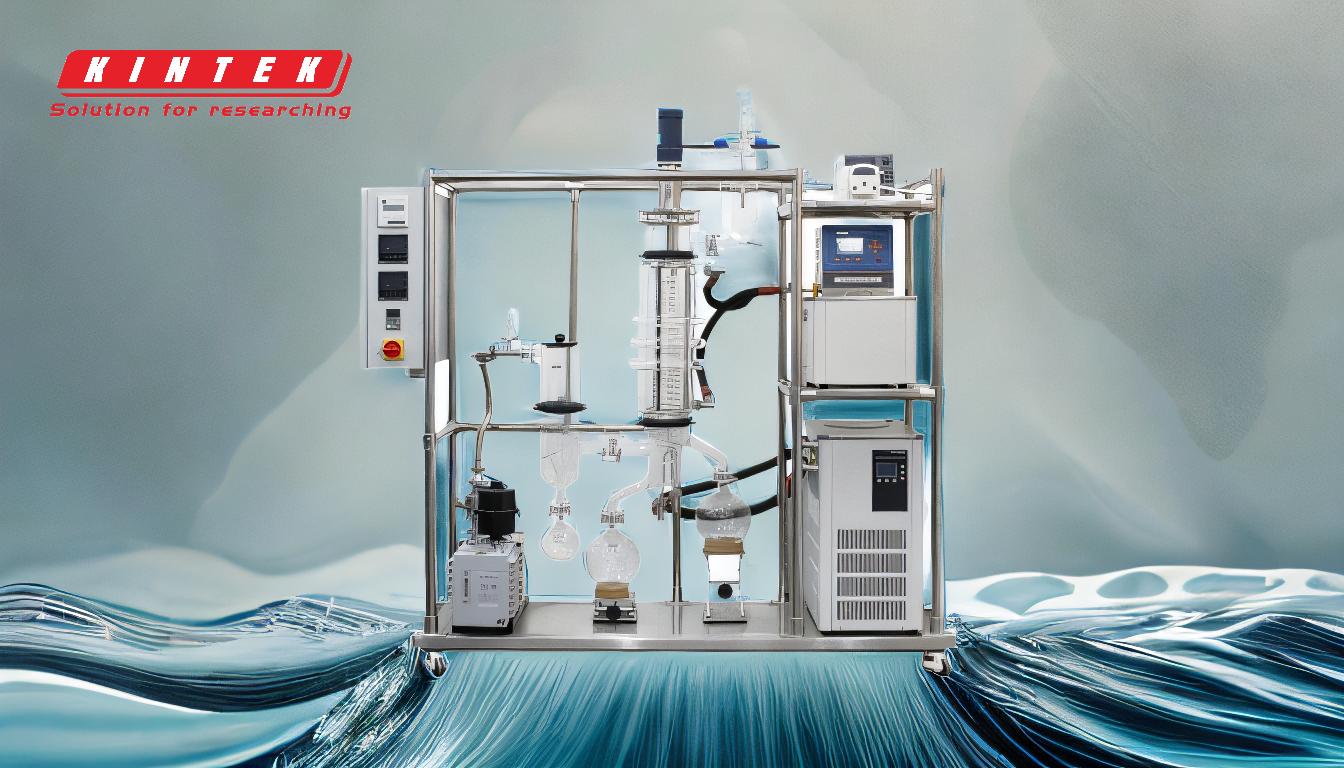Distillation is a highly effective method for separating compounds, particularly those in liquid mixtures, based on differences in their physical properties such as boiling points, vapor pressures, and volatility. By heating the mixture, the more volatile components vaporize first, are then condensed, and collected as distillate, while the less volatile components remain in the original container. This process is widely used in laboratories, industries, and even household settings to purify substances. Specialized techniques like Short-Path Distillation are employed for heat-sensitive compounds. Distillation is versatile, capable of separating liquids, and can even be adapted for gas separation under specific conditions.
Key Points Explained:

-
Principle of Distillation:
- Distillation relies on the differences in boiling points and vapor pressures of the compounds in a mixture.
- When heated, the more volatile component (lower boiling point) vaporizes first, while the less volatile component remains in the liquid phase.
- The vapor is then condensed back into a liquid and collected as the distillate.
-
Types of Distillation:
- Simple Distillation: Used for mixtures with significantly different boiling points.
- Fractional Distillation: Employed for mixtures with closer boiling points, using a fractionating column to enhance separation.
- Short-Path Distillation: Ideal for heat-sensitive compounds, as it minimizes the distance and time the vapor travels, reducing thermal degradation.
-
Applications of Distillation:
- Chemical Laboratories: Purification of solvents and reagents.
- Industrial Processes: Separation of crude oil into its various components (e.g., gasoline, diesel).
- Food and Beverage Industry: Production of alcoholic beverages and essential oils.
- Pharmaceuticals: Purification of active pharmaceutical ingredients (APIs).
-
Equipment Used in Distillation:
- Distillation Flask: Holds the mixture to be distilled.
- Condenser: Cools the vapor back into liquid form.
- Receiver Flask: Collects the distillate.
- Fractionating Column: Enhances separation in fractional distillation.
- Vacuum System: Used in vacuum distillation to lower the boiling points of compounds.
-
Advantages of Distillation:
- High Purity: Can achieve high levels of purity in the separated components.
- Versatility: Applicable to a wide range of mixtures and industries.
- Scalability: Can be scaled from small laboratory setups to large industrial processes.
-
Limitations of Distillation:
- Energy Intensive: Requires significant energy input for heating and cooling.
- Thermal Degradation: Risk of degrading heat-sensitive compounds.
- Complex Mixtures: May require multiple distillation steps or specialized techniques for effective separation.
-
Special Considerations:
- Heat-Sensitive Compounds: Techniques like Short-Path Distillation or vacuum distillation are used to minimize thermal degradation.
- Azeotropes: Mixtures that form azeotropes (constant boiling mixtures) cannot be separated by simple distillation and require additional methods like azeotropic distillation or the use of entrainers.
-
Distillation in Gas Separation:
- While primarily used for liquids, distillation can also be adapted for gas separation by liquefying components through changes in pressure and temperature, followed by fractional distillation.
In summary, distillation is a fundamental and versatile separation technique that leverages the physical properties of compounds to achieve purification. Its applications span across various fields, and while it has some limitations, specialized methods and equipment can address most challenges.
Summary Table:
| Aspect | Details |
|---|---|
| Principle | Relies on differences in boiling points and vapor pressures. |
| Types | Simple, Fractional, Short-Path Distillation. |
| Applications | Labs, oil refining, food & beverage, pharmaceuticals. |
| Equipment | Flask, condenser, receiver flask, fractionating column, vacuum system. |
| Advantages | High purity, versatility, scalability. |
| Limitations | Energy-intensive, risk of thermal degradation, complex mixtures. |
| Special Considerations | Heat-sensitive compounds, azeotropes, gas separation. |
Discover how distillation can optimize your processes—contact our experts today for tailored solutions!









